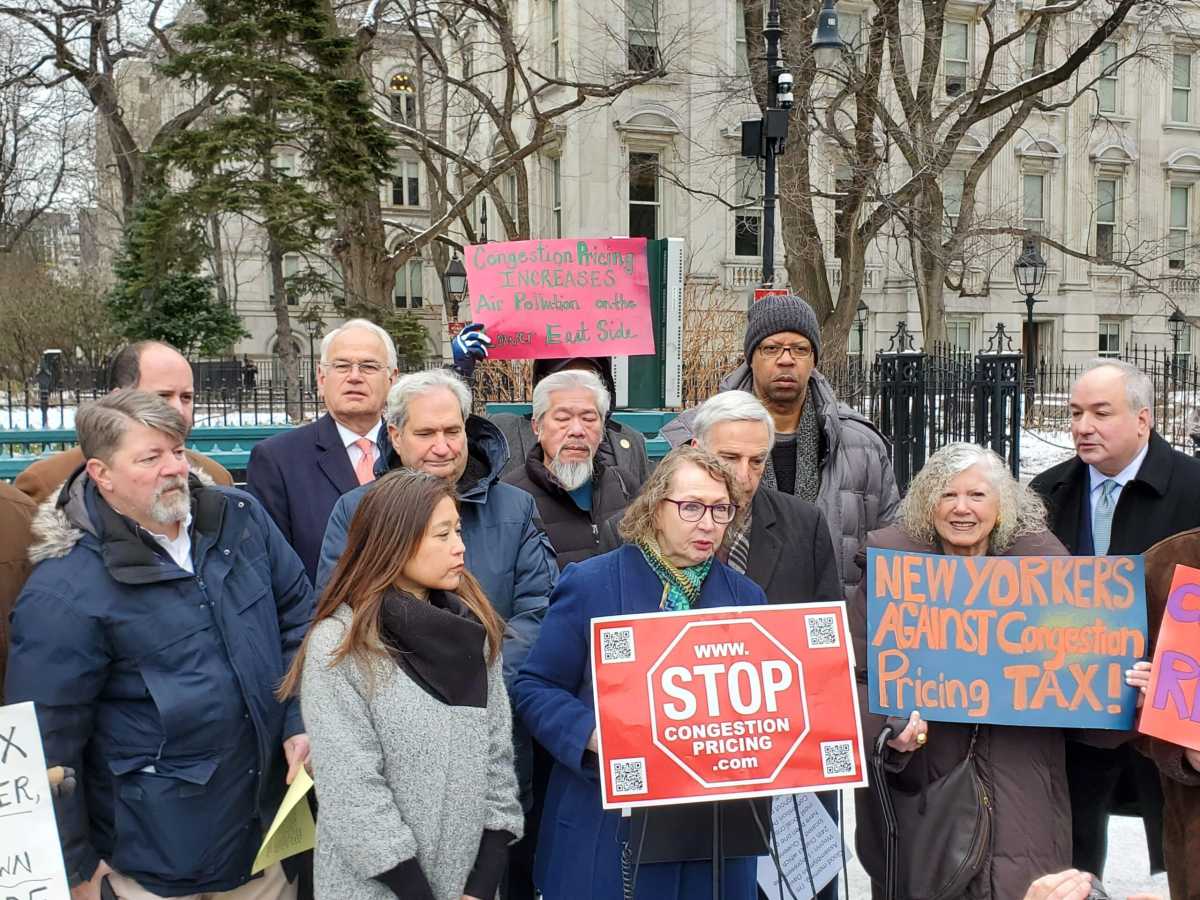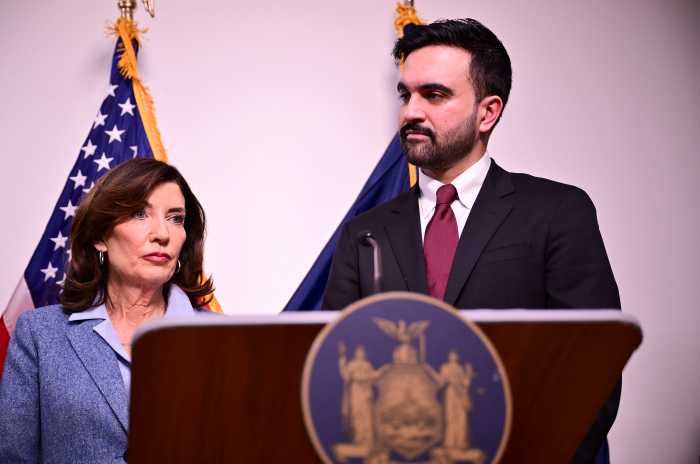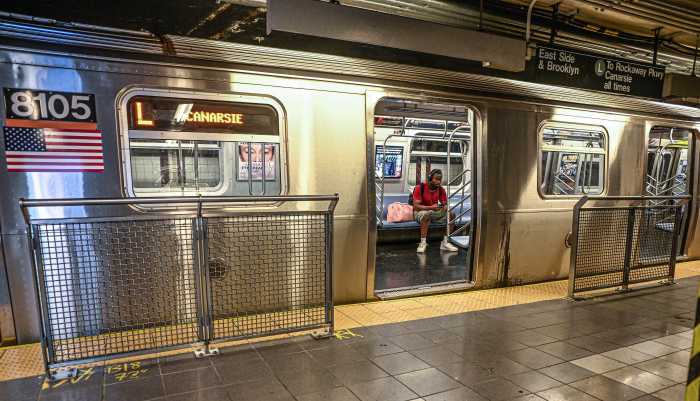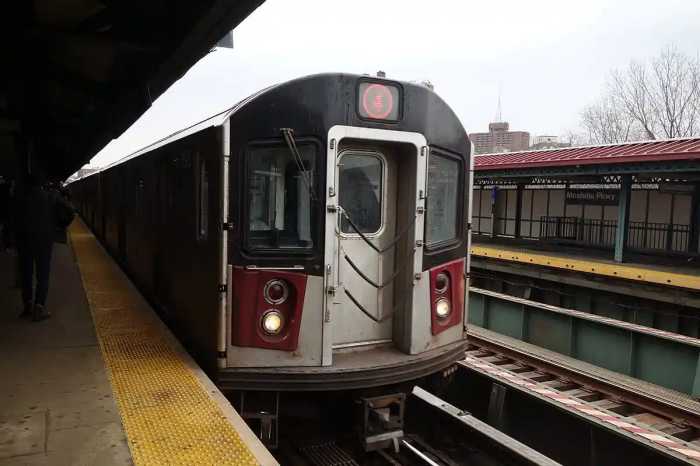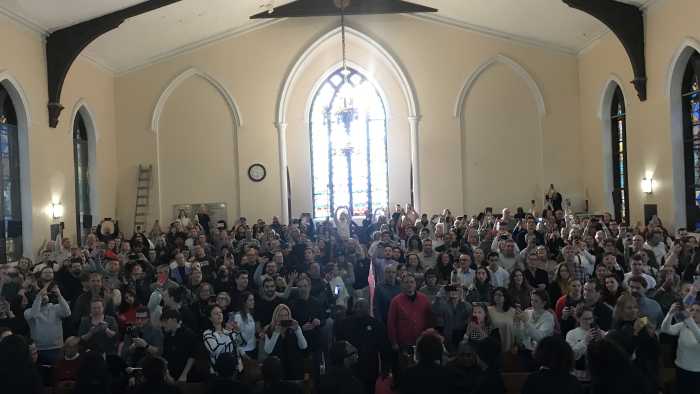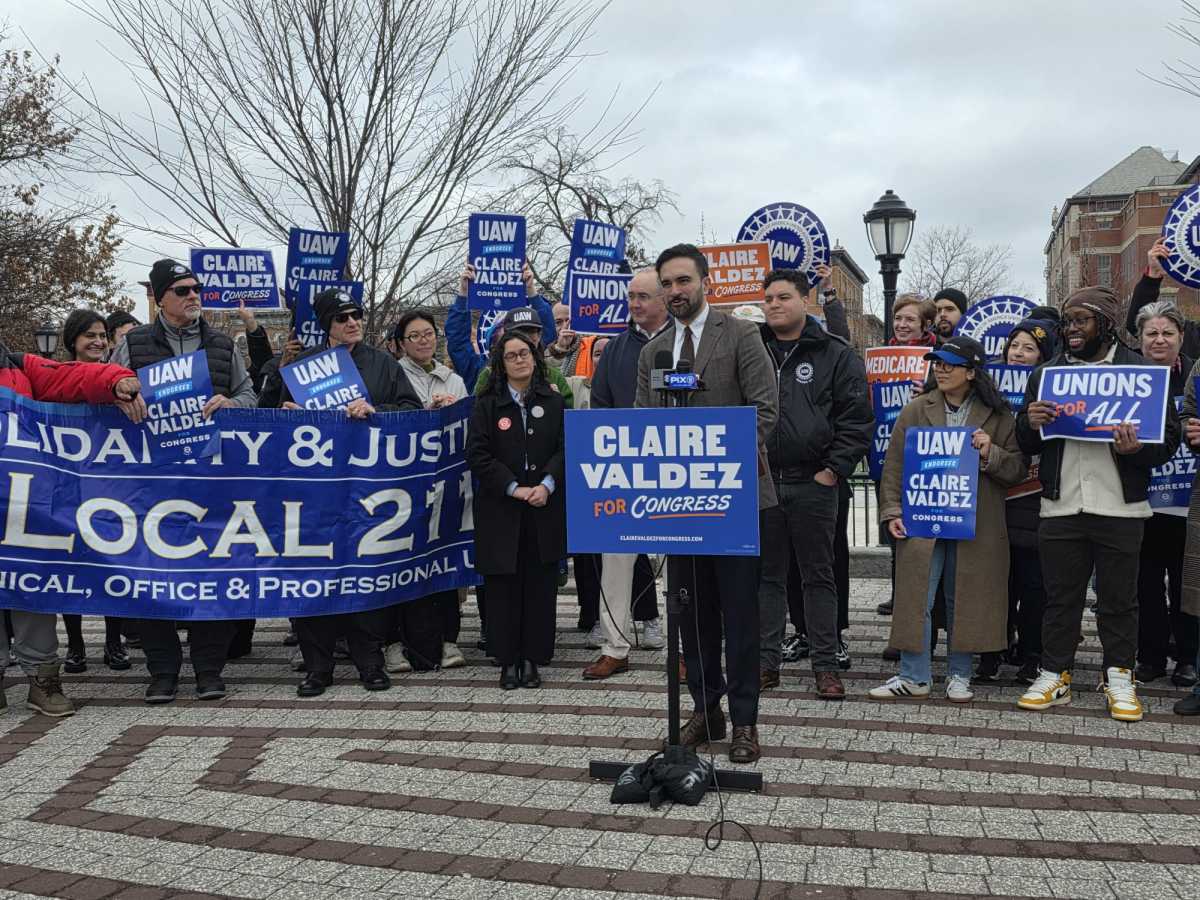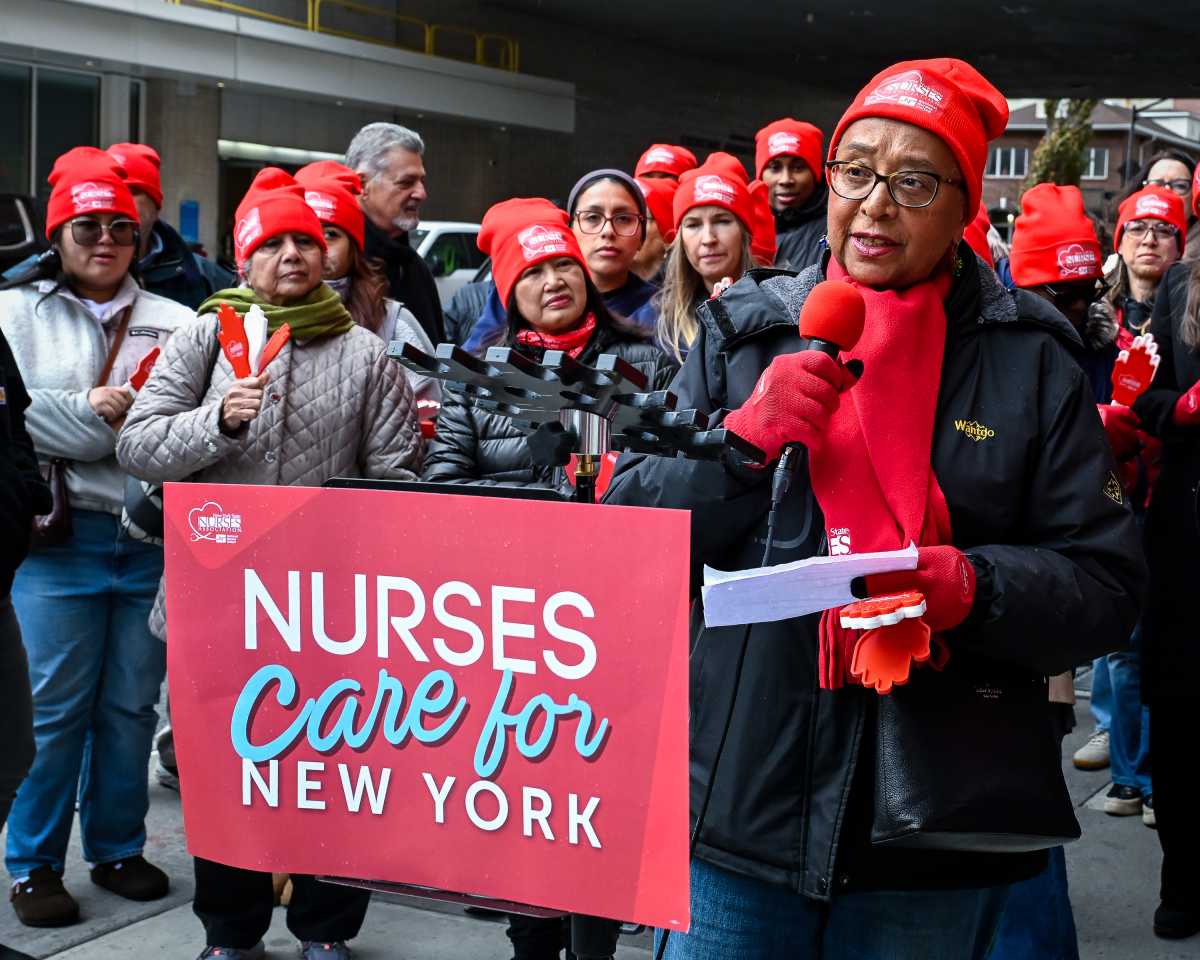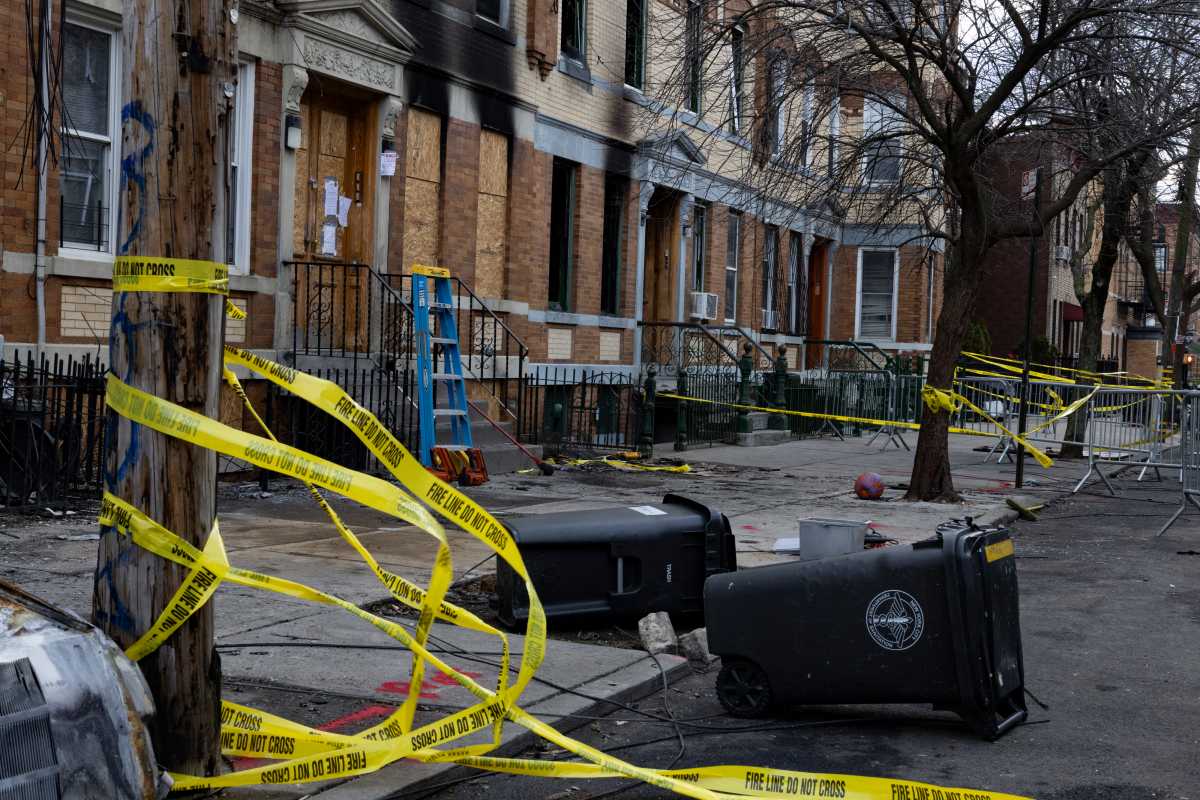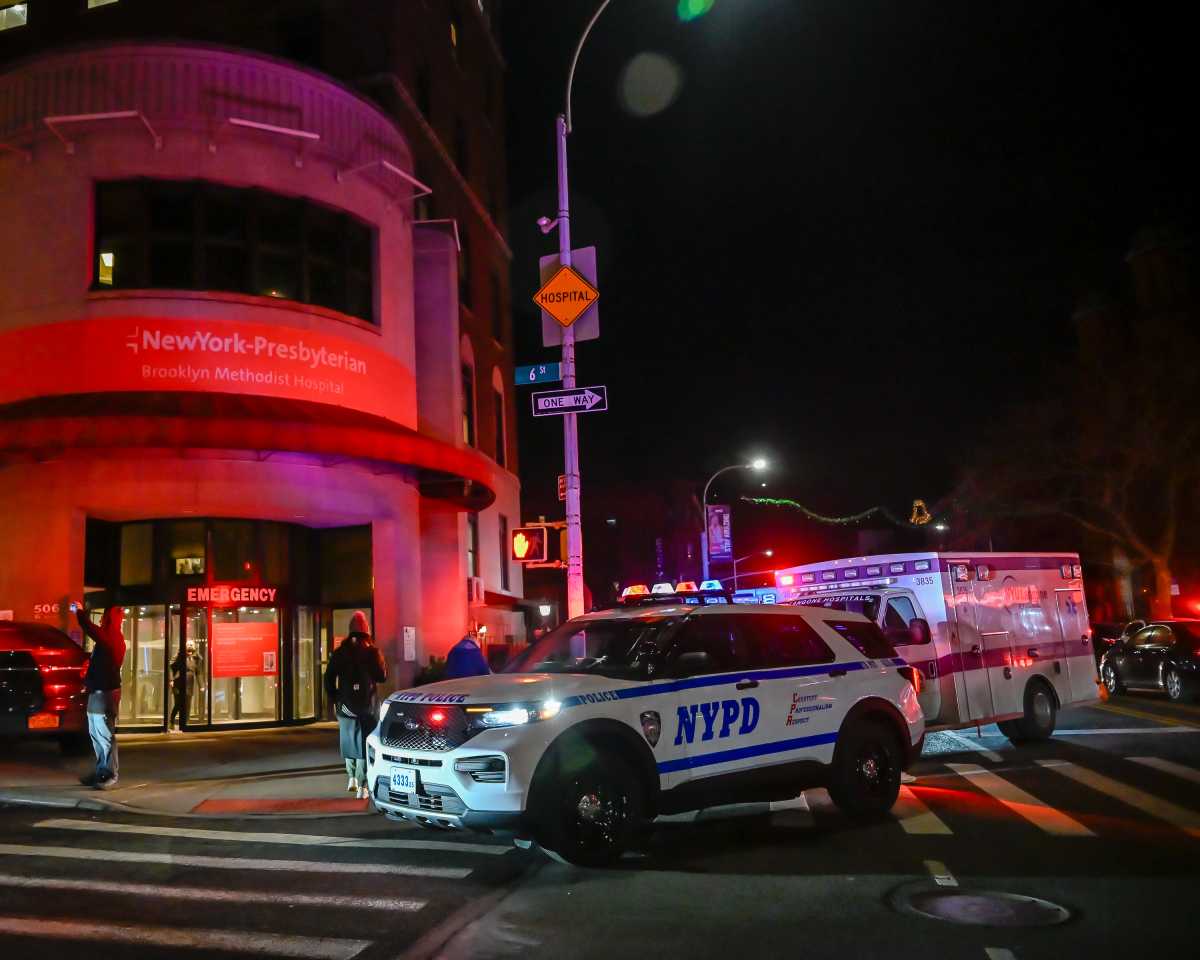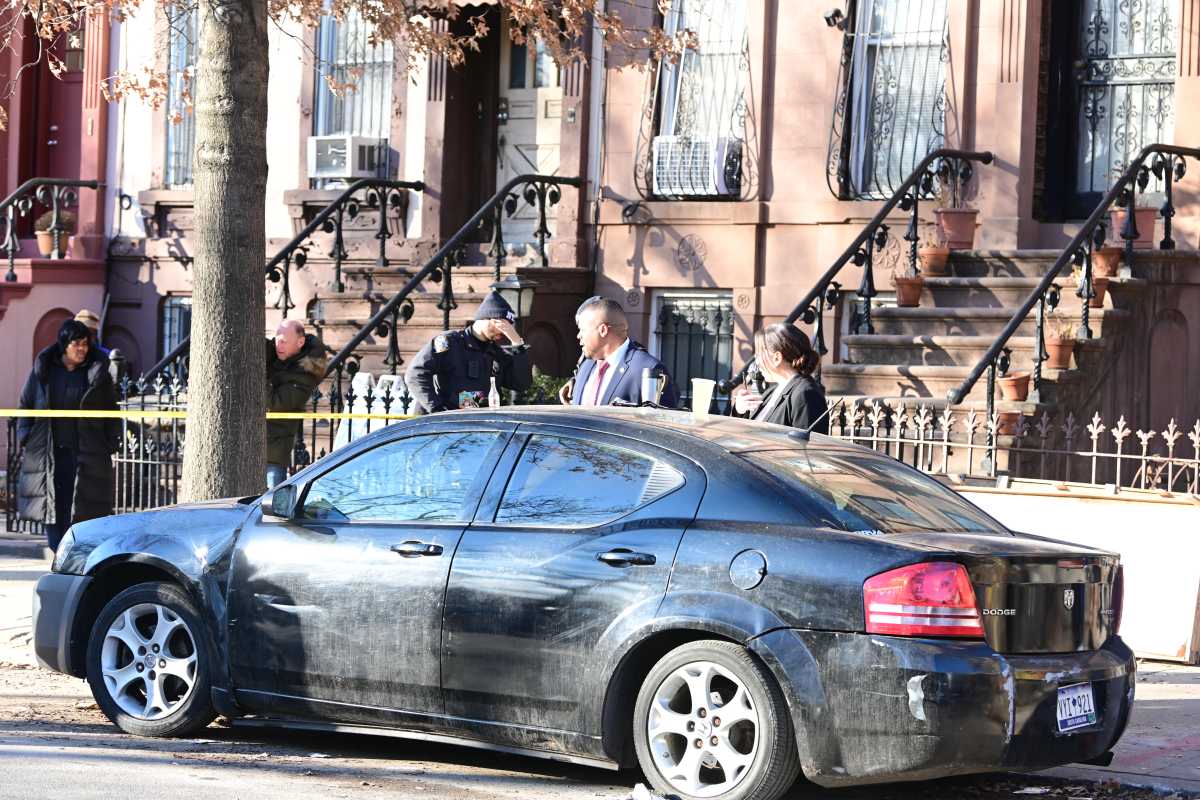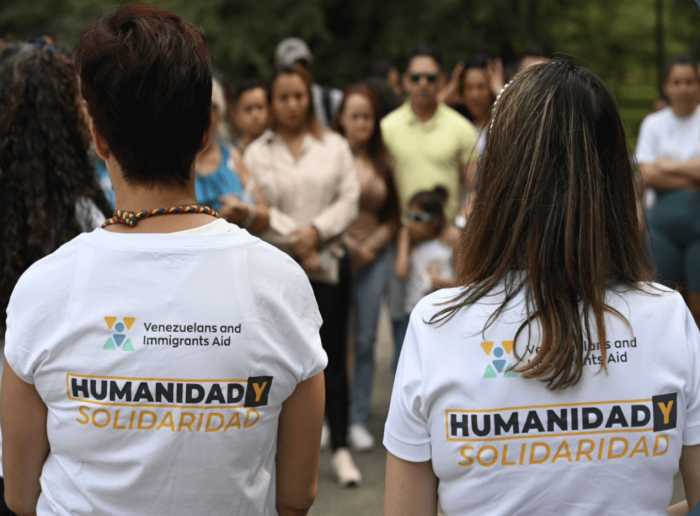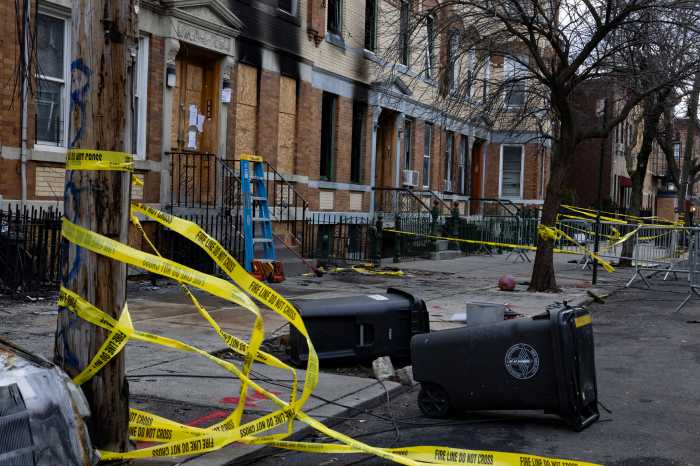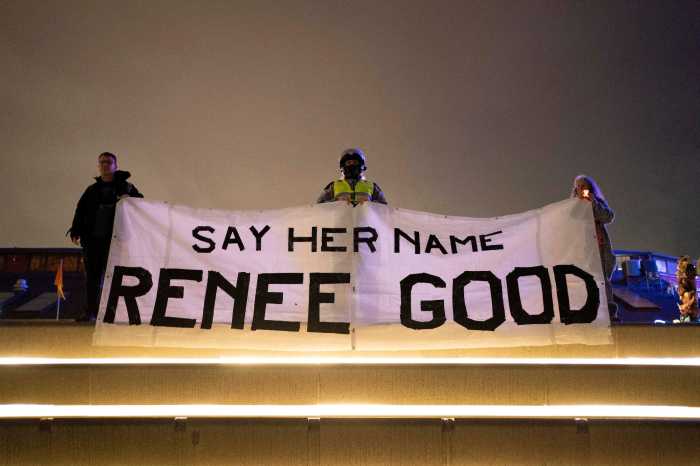The MTA has been hit with a third federal lawsuit seeking to overturn congestion pricing, this time led by a group of conservative city lawmakers.
The City Council’s Common Sense Caucus, a bipartisan group of conservative lawmakers, plus Queens Assemblymember David Weprin and a cadre of New Yorkers, mainly from the Lower East Side, filed the lawsuit in Manhattan federal court Thursday, naming the MTA and Federal Highway Administration as defendants.
Like the federal complaints previously filed by New Jersey and the United Federation of Teachers, the Common Sense Caucus argues that the MTA and FHWA conducted a half-baked environmental assessment of the program and should be made to undertake a much longer environmental impact statement.
“The city, the state, and the federal government did not do the proper review to protect the very citizens that were supposed to be protected by the environmental law of this nation,” said Jack Lester, the plaintiffs’ attorney, at a press conference outside City Hall on Thursday. “So that’s why we bring this case as a class action, so that we can resolve those issues that are negatively affecting so many New Yorkers. Emergency workers, police officers, nurses, firefighters, that will be taxed in a way that has not been evaluated.”
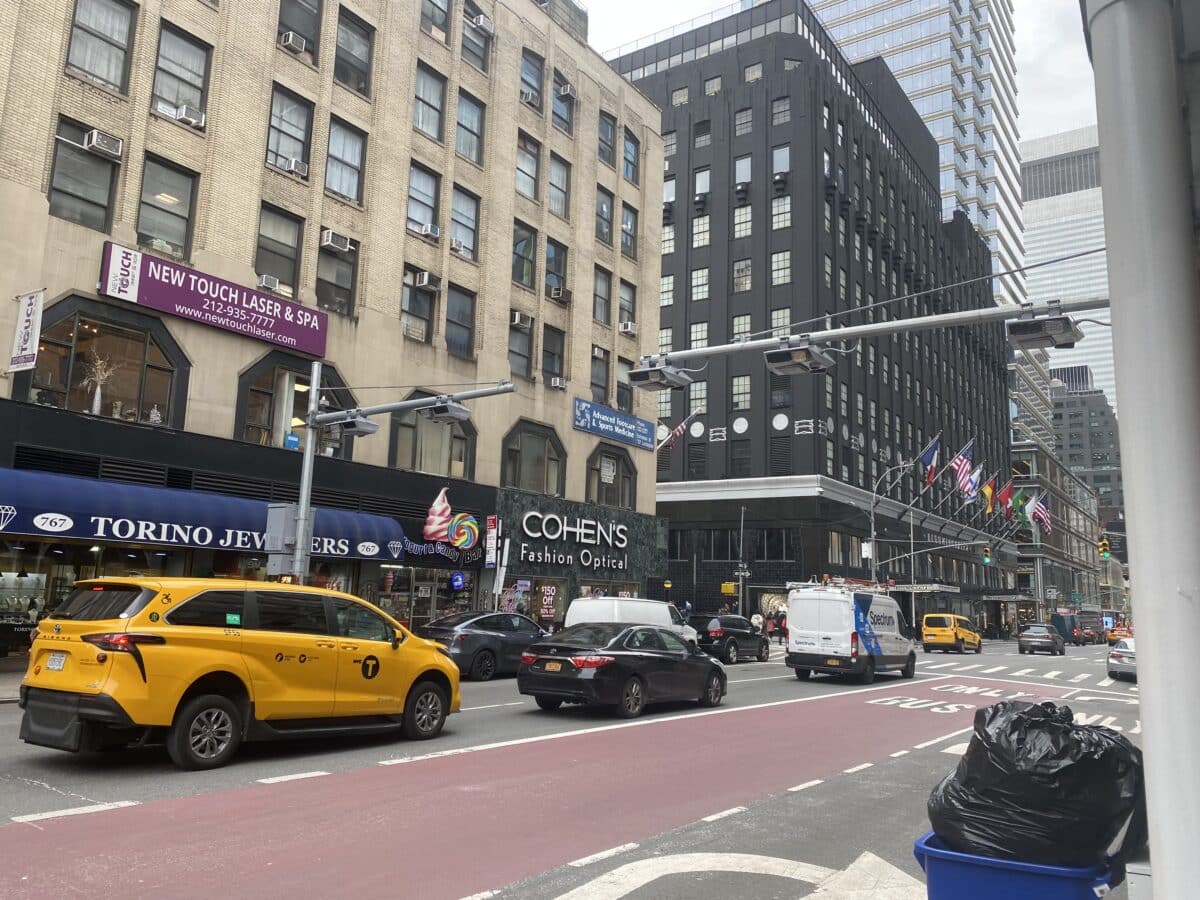
The MTA is set to finally implement its congestion pricing program, charging most motorists $15 per day for entering Manhattan south of 60th Street, this spring, aiming to reduce traffic in Manhattan and raise money for the city’s transit infrastructure.
‘It’s time to move forward’
The agency has previously defended its lengthy environmental assessment and is currently in talks to settle the case with New Jersey, but officials have said the lawsuits threaten to forestall the program’s timeline.
“This issue has been exhaustively studied in the 4,000-plus page environmental assessment, and will be re-evaluated for the adopted tolling structure before tolling commences,” said John McCarthy, the MTA’s chief of external relations. “It’s time to move forward and deal with the congestion that’s clogging roads and slowing down emergency vehicles, buses and commerce while also polluting the air we breathe.”
The vast majority of commuters in the tri-state area arrive in Manhattan on mass transit, and the MTA argues that the $15 billion they expect to generate from the program will greatly enhance its network, including making the subway system accessible and upgrading its ancient signal system.
But like their counterparts in New Jersey and the teachers union, the plaintiffs in the new case say the plan will have significant negative impacts on them financially.
A ‘severe financial burden’
Danny Buzzetta, an East Village funeral home director, says congestion pricing will make him lose his business, as he must drive to cemeteries and crematories outside the central business district multiple times per day. Lower East Sider Meredith LeVande is a music teacher at a Bronx preschool and says she cannot take mass transit, as she hauls heavy and expensive musical equipment to school each day. Chinatown ice cream entrepreneur Ricky Yang says the congestion charge will lead to increase prices for their supplies.
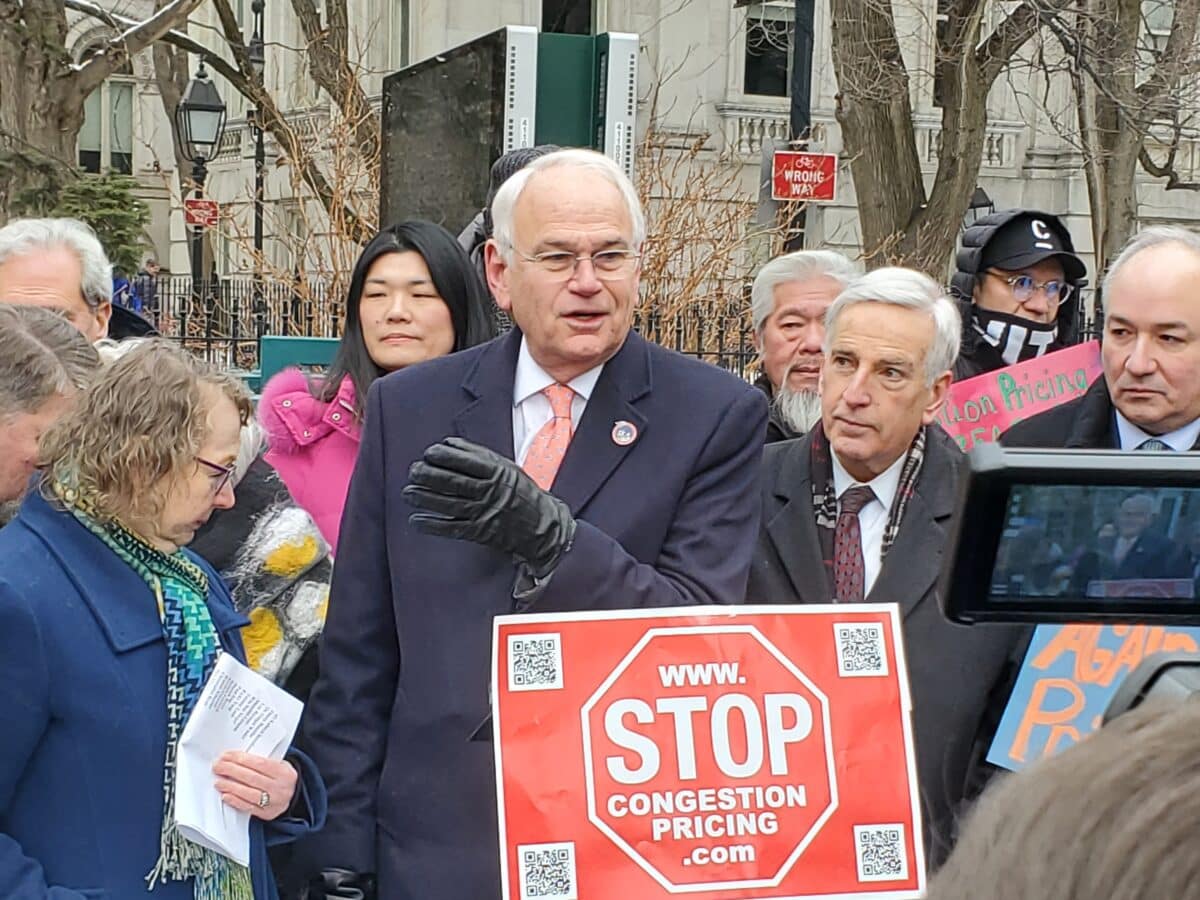
Meanwhile, plaintiff Rita Sue Siegel says she will face a “severe financial burden” driving from her second home upstate in Cold Spring to Manhattan for medical appointments.
“It’s insane that we have to pay to move around our city,” said Queens Council Member Bob Holden, one of the plaintiffs. “As a senior citizen, I don’t want to pay a tax to go to the hospital.”
Others who live near the FDR Drive, which will not be subject to the charge, say they fear more vehicles will pile onto the highway, causing increased air pollution, noise, and traffic in their neighborhood.
“This is an insult to our dignity and our right to a healthy environment,” said Trevor Holland, a Two Bridges resident and plaintiff, who said residents in the area suffer increased rates of asthma and cardiovascular disease due to FDR traffic and city agency depots near their homes. “The MTA’s plan will only worsen our health and our quality of life. To add insult to injury, the MTA offers absolutely no financial mitigation whatsoever.”
An MTA spokesperson responded to the plaintiffs’ contentions of increased traffic and pollution on the FDR corridor by noting they were based on hypothetical “tolling scenarios” that assumed a large number of discounts and exemptions, which would have raised the base toll and possibly led to increased “toll shopping.” The plan ultimately recommended by the MTA adopted almost none of the requested carve-outs.
To secure approval of the environmental assessment, the MTA committed to invest in mitigation efforts in some of the areas projected to see increases in traffic attempting to avoid the CBD, such as the South Bronx. The agency will invest tens of millions of dollars to electrify refrigeration trucks at the Hunts Point Market and add charging stations for trucks, as well as installing air filtration at local schools and planting roadside vegetation.
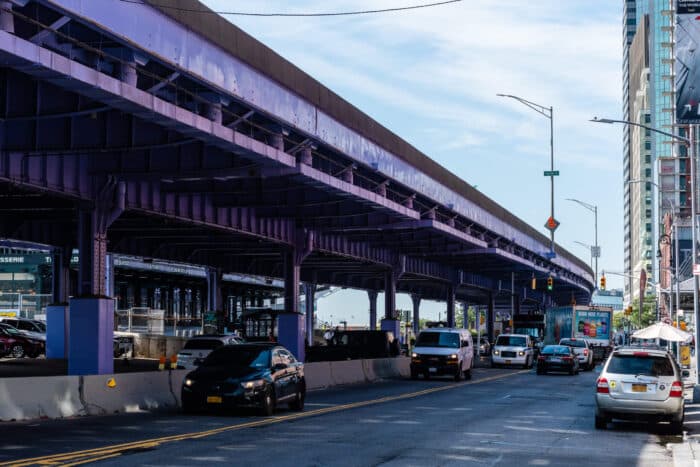
The preliminary fee structure approved by the MTA Board last year would charge higher rates for trucks and provide significant discounts overnight to encourage off-hours deliveries. Low-income drivers would be eligible for discounts after 10 trips into the CBD each month, while low-income Manhattan residents would be able to claim state tax credits to offset the cost of tolls.
The proposal is subject to public comment and hearings scheduled for February and March, ahead of a final vote by the MTA Board.
An MTA spokesperson said that despite now having three lawsuits to defend, the program is still on schedule to go into effect in the spring, and the agency is well underway installing gantries to automatically collect tolls. The mass transit upgrades congestion pricing would fund, however, are starting to see delays, most notably an effort to modernize signals on the A/C/E Fulton Street Line in Brooklyn.
Transit rider advocates seethed at the new lawsuit.
“Today, a handful of cynics with second homes filed yet another frivolous lawsuit in a parade of privileged objections to a fairer New York with modern, reliable, accessible public transit and cleaner air,” said Danny Pearlstein, policy director at the Riders Alliance. “What nerve to imagine that millions of subway and bus riders have similar recourse to expensive litigation and bucolic escapes from the pollution they leave in their wake each weekend and extended holiday.”
The Permanent Citizens Advisory Committee to the MTA, an in-house rider advocacy group, called the new suit “baseless” and “petty.”



